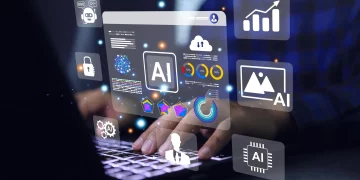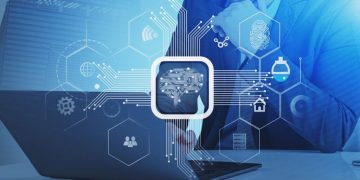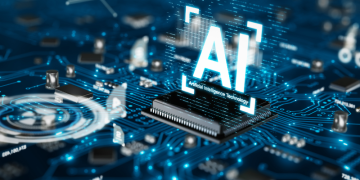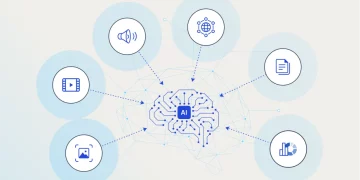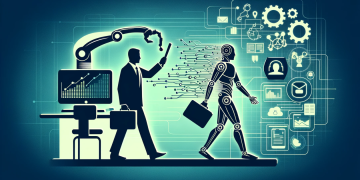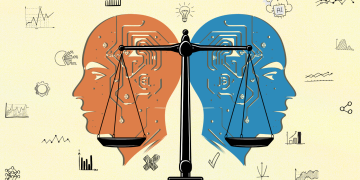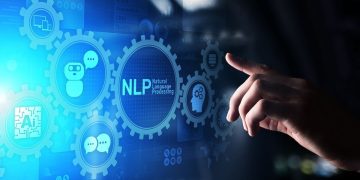As artificial intelligence (AI) continues to advance at a rapid pace, its applications are expanding across numerous sectors, including law enforcement, national security, and urban management. One of the most controversial areas where AI is being deployed is surveillance. AI-powered surveillance systems, which include facial recognition, predictive policing, and behavior analysis, are designed to enhance security and public safety. However, they raise significant ethical concerns, particularly regarding privacy, consent, and the potential for misuse. This article explores the ethical considerations of using AI in surveillance systems, examining the balance between security and privacy, as well as the challenges that arise in the implementation and regulation of these technologies.
The Rise of AI in Surveillance
AI’s integration into surveillance systems is revolutionizing how governments, corporations, and organizations monitor and track individuals. Traditional surveillance systems typically rely on human operators and manually collected data, but AI technology allows for the automation and real-time analysis of vast amounts of data. AI systems can process and analyze video footage, audio, and digital data, enabling faster and more accurate identification of potential threats or criminal activities. These systems are increasingly being used in public spaces, such as airports, shopping malls, city streets, and even private homes.
Facial recognition technology is one of the most prominent AI applications in surveillance. By analyzing facial features, AI can identify individuals from surveillance footage with a high degree of accuracy. This technology is being used by law enforcement agencies to locate suspects, identify missing persons, and track individuals in real time. Additionally, AI-powered systems can analyze behavior patterns, such as body language or movement, to predict and prevent potential crimes or disturbances.
While AI surveillance offers significant benefits in terms of enhancing security, it also introduces complex ethical dilemmas. The widespread deployment of AI surveillance raises important questions about the balance between the need for security and the protection of individual rights, particularly the right to privacy.
Privacy Concerns and the Right to Anonymity
One of the most pressing ethical concerns surrounding AI in surveillance is the potential violation of privacy. Privacy is a fundamental human right, and the ability to live without constant surveillance is an essential component of personal freedom. When AI is used for surveillance, it can infringe on this right by allowing for the collection and analysis of vast amounts of personal data, often without individuals’ knowledge or consent.
AI-powered surveillance systems are capable of capturing and storing detailed information about individuals, such as their movements, interactions, and behaviors. This data can be used to create detailed profiles of individuals, including their daily routines, preferences, and even their political beliefs. In some cases, AI systems may even predict an individual’s future actions based on their past behavior, raising concerns about the potential for surveillance to be used for purposes beyond security.
The issue of consent is also a significant concern. In many cases, individuals are unaware that they are being monitored by AI surveillance systems. For example, facial recognition technology can be deployed in public spaces without the explicit consent of the individuals being observed. This lack of transparency raises questions about whether individuals are being unfairly subjected to surveillance and whether they have the right to opt-out of such monitoring.
The Risk of Discrimination and Bias in AI Surveillance
Another ethical issue with AI in surveillance is the risk of discrimination and bias. AI systems are only as good as the data they are trained on, and if that data is biased or unrepresentative, it can lead to unfair outcomes. In the case of facial recognition technology, studies have shown that AI systems are more likely to misidentify individuals from certain demographic groups, particularly people of color, women, and young people. This bias can result in false positives or negatives, leading to unjust surveillance, wrongful arrests, or the targeting of specific groups.
The use of AI in predictive policing also raises concerns about racial and socio-economic bias. Predictive policing algorithms are designed to analyze historical crime data to predict where crimes are likely to occur in the future. However, these algorithms can perpetuate existing biases in the data, which may lead to over-policing of certain neighborhoods or communities that are already disproportionately affected by crime. As a result, AI-powered surveillance could reinforce existing social inequalities and lead to unfair targeting of vulnerable groups.
The ethical implications of bias in AI surveillance are far-reaching, as it could result in the systematic discrimination of marginalized communities. It is crucial for AI developers, policymakers, and law enforcement agencies to be aware of these biases and take steps to ensure that AI systems are designed and deployed in a way that is fair, transparent, and inclusive.

The Risk of Mass Surveillance and the Erosion of Civil Liberties
The widespread use of AI surveillance also raises concerns about mass surveillance and the erosion of civil liberties. AI has the potential to create an environment where individuals are constantly monitored, tracked, and analyzed, leading to a loss of personal autonomy and the chilling of free expression. This is particularly concerning in authoritarian regimes, where AI surveillance can be used to suppress dissent, monitor political opposition, and stifle free speech.
In democratic societies, the use of AI in surveillance also poses a threat to civil liberties, particularly the right to freedom of assembly and protest. AI-powered surveillance systems can be used to monitor public gatherings, such as protests or demonstrations, and track the identities of participants. This could result in the criminalization of peaceful protestors, the infringement of the right to protest, and the suppression of political activism.
The potential for AI surveillance to be used for mass surveillance purposes has sparked debates about the need for strict regulations and oversight. Advocates for civil liberties argue that the use of AI surveillance must be carefully controlled to ensure that it does not infringe on basic rights. Without proper checks and balances, AI surveillance systems could be used to monitor individuals for arbitrary or politically motivated reasons, leading to the erosion of fundamental freedoms.
Transparency, Accountability, and Regulation
As AI surveillance systems become more prevalent, it is essential to establish clear regulations and guidelines to ensure that these technologies are used ethically and responsibly. One of the key principles of ethical AI deployment is transparency. Individuals should be informed when they are being monitored by AI systems, and they should have the ability to access and control the data collected about them. Transparency also involves ensuring that AI systems are auditable and that the decisions made by these systems can be explained and understood by both the public and policymakers.
Accountability is another crucial consideration. AI systems used for surveillance should be held accountable for any negative consequences they cause, such as wrongful arrests, biased outcomes, or violations of privacy. This includes ensuring that AI developers and law enforcement agencies are responsible for the ethical deployment of AI technologies and that there are mechanisms in place to challenge and rectify any errors or injustices that arise from their use.
Regulation plays a critical role in ensuring that AI surveillance systems are used responsibly and in line with ethical standards. Governments and international bodies must establish clear regulations that govern the use of AI in surveillance, including guidelines on data collection, storage, and usage. These regulations should prioritize the protection of individual rights, promote transparency, and ensure that AI systems are deployed in a way that benefits society as a whole.
The Need for a Balance: Security vs. Privacy
The ethical challenges associated with AI in surveillance ultimately boil down to the need for a balance between security and privacy. On one hand, AI surveillance has the potential to enhance public safety, prevent crime, and protect citizens. On the other hand, it poses significant risks to privacy, civil liberties, and the potential for abuse.
To strike this balance, it is essential that AI surveillance technologies are deployed with clear ethical guidelines, strong oversight, and safeguards to protect individuals’ rights. Privacy considerations must be taken into account at every stage of AI development and deployment, from data collection to algorithm design. Additionally, there must be ongoing dialogue between technology developers, lawmakers, civil society, and the public to ensure that AI surveillance is used in a way that serves the common good while respecting fundamental human rights.
Conclusion
The use of AI in surveillance presents both tremendous opportunities and serious ethical challenges. While AI technologies can enhance security and public safety, they also raise significant concerns about privacy, consent, discrimination, and the potential for mass surveillance. As AI surveillance systems become more widespread, it is essential to address these ethical considerations through transparency, accountability, and regulation. By carefully balancing the need for security with the protection of individual rights, we can ensure that AI surveillance serves as a tool for public good rather than a threat to personal freedom.




